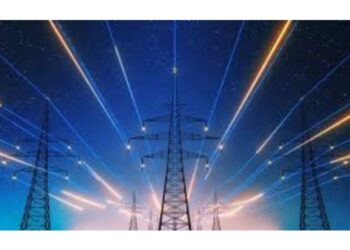India, a country renowned for its vast and diverse landscapes, is making remarkable strides in its journey towards a sustainable future. One significant aspect of this transformation is the development of electric infrastructure in rural areas. As the nation seeks to bridge the urban-rural divide, electrifying rural India holds immense promise, offering numerous benefits to its people and the environment.
India is also at the forefront of a revolution in the transportation sector. As the world embraces the transition towards electric vehicles (EVs) to combat climate change and reduce dependence on fossil fuels, rural India too is poised to benefit from this transformative shift. The development of electric infrastructure for EVs in rural areas holds immense promise, offering numerous benefits to the environment, the economy, and the people.
Electric vehicles are gaining popularity globally as a cleaner and more sustainable mode of transportation. The electrification of rural India brings several advantages when it comes to EV adoption. Firstly, electric vehicles contribute to reducing greenhouse gas emissions and air pollution, offering a cleaner and healthier environment for rural communities. By replacing conventional fossil fuel-powered vehicles with EVs, rural areas can experience a significant reduction in carbon dioxide emissions, improving air quality and public health.
The development of charging infrastructure is a critical component of facilitating EV adoption in rural areas. Electric vehicle consumption refers to the quantity of electricity utilised by electric vehicles for their operation and charging. The amount of electricity consumed by EVs is influenced by factors like the vehicle’s efficiency, driving conditions, battery capacity and charging patterns. Making precise predictions about EV consumption in 2030 is difficult due to numerous variables, such as technological advancements, government policies, infrastructure development and consumer adoption rates. Nonetheless, various studies and projections indicate substantial growth in EV consumption by 2030 in comparison to the present.
The power consumption in rural areas compared to urban areas can differ considerably based on several factors. These factors include population density, infrastructure development, living standards and access to modern amenities. In general, urban areas tend to have higher power consumption for these reasons.In India electricity consumption per capita reached 920 kWh in 2021, about a third of the Asian average. Total energy consumption increased by 9% in 2021 to 951 Mtoe, after a 5.9% drop in 2020.According to the power ministry, the country’s electricity generation capacity will reach 820 GW by 2030, including more than 500 GW from non-fossil fuel sources.
Innovative solutions such as decentralised charging points, community charging stations and mobile charging units can cater to the unique requirements of rural India. These initiatives can leverage solar power, wind power, battery storage systems and digital technologies to provide efficient and affordable charging options for EV users. Moreover, the integration of smart grid technologies can optimise the charging process, manage energy demand and enable efficient grid management in rural areas.
The impact of rural electrification : Access to electricity has revolutionized education, healthcare, and economic opportunities in rural India. Improved lighting and extended working hours have enhanced productivity and safety, while reliable power supply in healthcare centers enables the use of life-saving medical equipment. Schools can now provide quality education with the aid of technology, and electric-powered irrigation systems have transformed farming practices, boosting agricultural productivity. The growth of small-scale industries and entrepreneurship has created jobs and stimulated local economies. The power of electricity has truly empowered rural communities.
Overcoming challenges :Efforts to ensure efficient and sustainable electric infrastructure in rural India face challenges that need to be addressed for long-term success. Last-mile connectivity remains a significant hurdle, especially in remote and inaccessible regions. Power outages and inadequate maintenance undermine the reliability of the grid. Financial viability and integrating renewable energy sources pose additional complexities. Raising awareness and promoting energy-efficient practices are essential for maximizing the benefits of electrification.
The way forward: To navigate these challenges and unlock the true potential of electric infrastructure in rural India, a multi-faceted approach is needed. Continued investment in expanding the electric grid, particularly in remote areas, is crucial. Innovative solutions such as microgrids and decentralized renewable energy systems should be explored to overcome geographical barriers.
Also, the electrification of rural India for EVs presents a promising future. With the integration of clean and renewable energy sources, the development of charging infrastructure, and the economic benefits it brings, rural India can actively participate in the electric mobility revolution. Embracing electric vehicles in rural areas not only contributes to a cleaner environment but also fosters energy independence, economic growth, and improved quality of life for rural communities. As India powers progress towards a sustainable future, the bright prospects of electric infrastructure for EVs in rural areas will play a pivotal role in achieving a greener and more inclusive transportation system.
Empowering local communities through skill development and capacity-building programs will ensure long-term sustainability and minimize downtime. Strengthening governance and regulatory frameworks, including clear policies on tariff structuring, revenue collection and quality control will enhance investment and service delivery. However, the electrification drive in rural India is not without its challenges, overcoming issues such as infrastructure gaps, financial constraints, and last-mile connectivity remains a priority. With the government’s commitment, innovative solutions and collaborations between public and private sectors, these hurdles can be surmounted.
The journey towards robust electric infrastructure in rural India is a transformative endeavor that holds immense potential. By prioritizing last-mile connectivity, integrating renewable energy, investing in skill development, strengthening governance, and fostering community engagement, rural India can overcome obstacles and pave the way for progress. With every village that lights up, rural India takes a significant step forward on its path to a brighter future.
About The Author:

Pankaj Goyal
The author is the Co-Founder & COO of AutoNxt Automation (https://autonxt.in) India’s First electric tractor venture and an automation technology startup.













